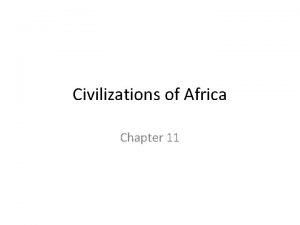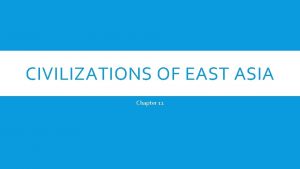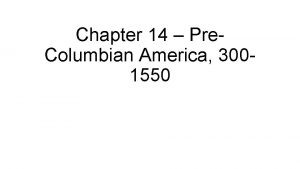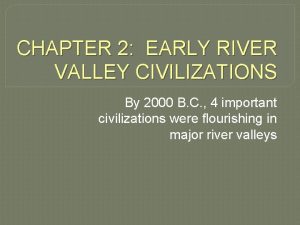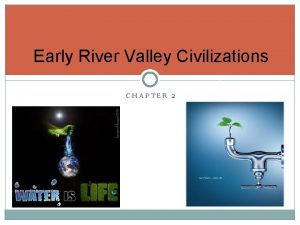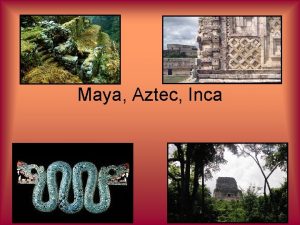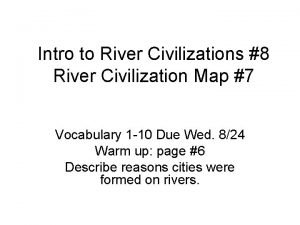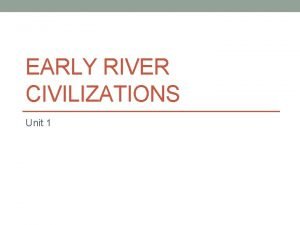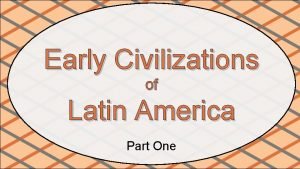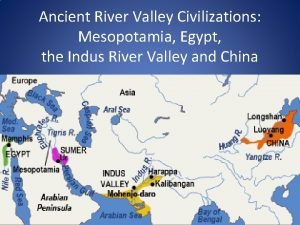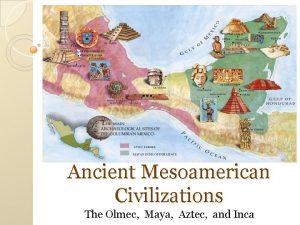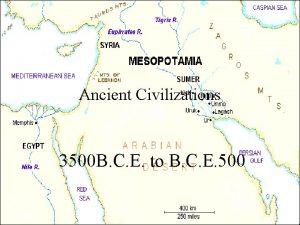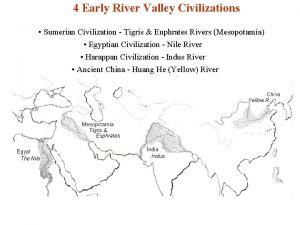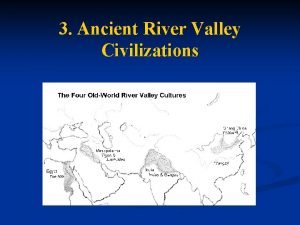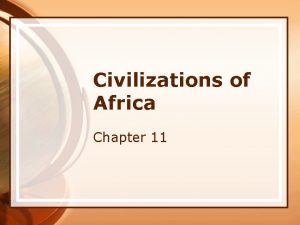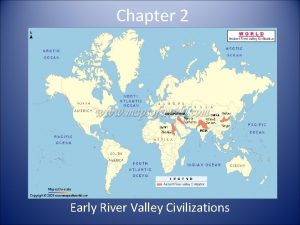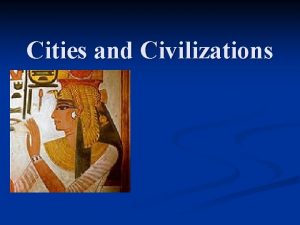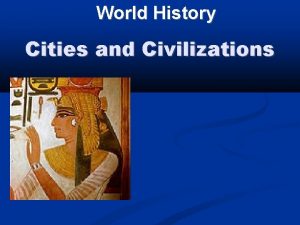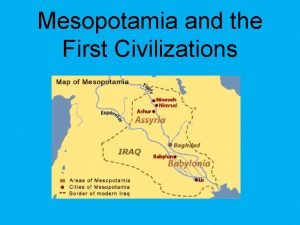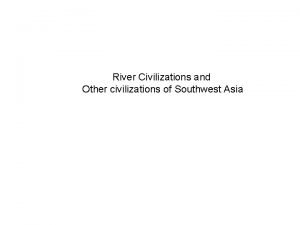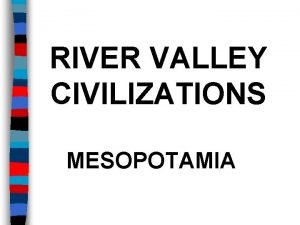Civilizations of Africa Chapter 11 Africa and the















- Slides: 15

Civilizations of Africa Chapter 11

Africa and the Bantu Section 1

Africa’s Physical Geography • People kept searching for better land for farming – Migration – mass movement of people – Not even physical barriers can stop a great migration, or movement of people • The largest desert in Africa and the world is the Sahara

• Tropical rain forest are on either side of the equator – think of the mirror on the movie • Much of the area north and south of Africa’s rain forest is savanna – Savanna – areas of gently rolling land covered by grasses

The Bantu • Bantu is a language – the people were known as the Bantu – When they migrated they spread their language and culture • They lived in a clan – a group of families who traced their roots to the same ancestor • The Bantu-speaking people migrated because they were looking for better farmland better grazing

The Bantu (con’t) – remember about the title! • The migrations of the Bantu people lasted more than 1, 000 years to and in Africa • The only reason we know about the Bantu is from oral history –accounts of the past that people pass down by word of mouth – Traditional African story tellers help historians study the Bantu migrations

Section 2 Kingdoms of West Africa

Kingdoms of the Savanna • Ghana was the first West African kingdom based on the gold and salt trade – People would usually trade salt to get gold • West African trade was based on gold and salt – Very important products • Mali was centered in the Upper Niger Valley – In about 1230, under the leadership of Sundiata, Mali took control of the salt and gold trade – Sundiata made Mali the most powerful kingdom in West Africa

Kingdoms of the Savanna (con’t) • Mansa Musa became ruler of Mali, North Africa has brought the new religion, Islam – Remember the trip to the holy city of Mecca? – This trip that they took created new ties between Mali and the Muslim people of North Africa and Southwest Asia • Muslim scholars in the empire of Mali taught students religion, mathematics, medicine, and law – Mansa Musa wanted Mali to be the center of learning

Kingdoms of the Forest • Benin and Ile-Ife were two of the most important kingdoms of the West African forests • Ile-Ife – A center of culture and trade – Not much is known about area – Thick woods and damp area has washed much of the possible artifacts away

Kingdoms of the Forest (con’t) • Benin rules an Empire – Workers mined copper, iron, and gold – Leader – obas • Sold slaves to African traders – Benin reached its greatest strength and size • Ruled trade along the rivers

Section 3 East Africa’s Great Trading Centers

Ancient Ethiopia • The port cities of East Africa traded with China, India, and Southwest Asia • Kilwa was a Muslim city that thrived because of trade with these foreign lands • Aksum is located in present-day Ethiopia – 300 s A. D. the official religion of Aksum was Christianity • The Muslim traders drove the rulers of Aksum from the coast of Africa for Red Sea trade routes

Rich Centers of Trade • Each port was a city-state – A city that is also a separate, independent state – Kilwa was a city state • Kilwa traded with Africans and Arabs – this lead to a new culture and language – Swahili is a Bantu language with Arabic words, spoken along the West African coast

Great Zimbabwe • Great Zimbabwe provided must of the gold that was brought to the Swahili city states • Most people in this area were poor famers • The only rich were those who traded the gold – They build great stone walled structures • By 1500 the city had fallen • Trade routes moved • Today the stone ruins still stand!
 Chapter 11 section 1 early civilizations of africa
Chapter 11 section 1 early civilizations of africa Ancient india lesson 1 early civilizations
Ancient india lesson 1 early civilizations Lesson quiz 11-3 civilizations of east asia
Lesson quiz 11-3 civilizations of east asia Lesson 1 the peoples of north america and mesoamerica
Lesson 1 the peoples of north america and mesoamerica River valley civilizations def
River valley civilizations def Chapter 2 early river valley civilizations
Chapter 2 early river valley civilizations Chapter 26 civilizations in crisis the ottoman empire
Chapter 26 civilizations in crisis the ottoman empire Map of maya aztec and inca
Map of maya aztec and inca Ancient river valley civilizations map
Ancient river valley civilizations map Ancient river valleys map
Ancient river valleys map Early south american civilizations
Early south american civilizations 4 river valley civilizations
4 river valley civilizations Inca maya aztec olmec timeline
Inca maya aztec olmec timeline 3500bce
3500bce 4 river valley civilizations
4 river valley civilizations River valley civilizations definition
River valley civilizations definition
